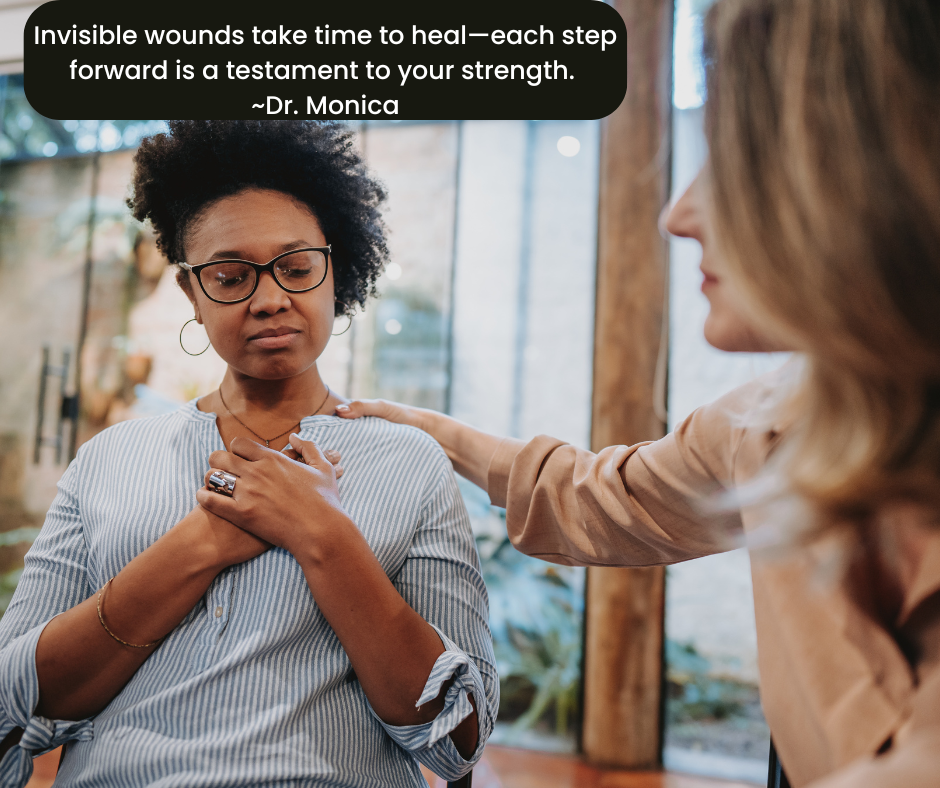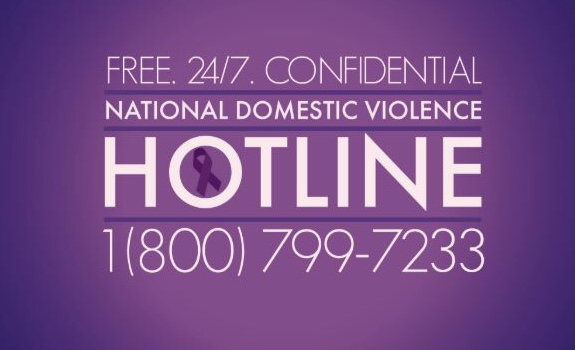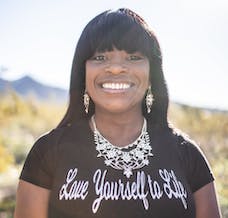Leaving an abusive relationship is one of the bravest steps anyone can take. For many survivors, it means reclaiming freedom, safety, and peace. However, while the physical separation from abuse is a tremendous victory, the journey of emotional and mental healing can continue long after leaving. Survivors often carry deep, lasting effects of the abuse—wounds that, though invisible, can be just as painful and damaging.
Understanding the mental and emotional impact of abuse can help survivors, family, and friends support healing in a genuine, meaningful way. By recognizing these challenges, we begin a compassionate journey toward healing, understanding, and ultimate restoration.
Mental and Emotional Effects of Abuse
Abuse affects every aspect of a person’s life. Emotional scars from an abusive relationship often create a lasting internal struggle, affecting self-worth, confidence, and the ability to trust. These invisible wounds can lead to anxiety, depression, and a persistent feeling of unworthiness. Even after leaving, survivors may face overwhelming self-doubt, fears, and struggles with feelings of isolation. Emotional scars left by an abusive relationship can lead to a variety of mental and psychological challenges, including:
Low Self-Esteem – Repeated criticism, verbal attacks, and manipulation can wear down a survivor’s sense of worth. Even after leaving, many survivors struggle with feelings of inadequacy, self-doubt, and unworthiness.
Depression and Anxiety – Trauma, particularly from emotional or physical abuse, can increase vulnerability to depression and anxiety. Survivors may face recurring bouts of sadness, hopelessness, or overwhelming worry, often triggered by reminders of the past.
Post-Traumatic Stress Disorder (PTSD) – PTSD is common among abuse survivors. It’s characterized by flashbacks, nightmares, and heightened anxiety. Survivors may be hyper-alert, feeling as though danger is ever-present, which makes it hard to trust or relax fully.
Difficulty Trusting Others – Abuse often erodes a person’s sense of trust, especially if the abuser was someone they loved or depended on. This mistrust can extend into new relationships, making it hard for survivors to feel safe or secure with others.
Feelings of Isolation – Survivors may experience isolation not only during the relationship but also afterward. Shame, guilt, or fear of being judged often prevent them from sharing their story with others, leading to prolonged loneliness.
Self-Blame and Guilt – Abusers often manipulate their victims to feel responsible for the abuse. Many survivors carry this misplaced guilt and blame long after they’ve left, which impedes their healing.
The Path to Healing: Action Steps for Survivors
Healing is a personal, ongoing journey, but there are steps that survivors can take to begin finding peace, joy, and confidence again.
Seek Professional Help
Therapy with a licensed counselor, especially one experienced in trauma, can be an invaluable tool for processing and overcoming the past. There are also local resources and support groups where survivors can connect with others who understand their experiences.
Establish a Strong Support System
Building or reconnecting with a support network can help survivors feel less isolated. Trusted family members, friends, or support groups can be sources of encouragement and accountability.
Practice Self-Compassion
Survivors may find it hard to be kind to themselves, especially if they’ve been conditioned to see themselves negatively. Practicing self-compassion means treating oneself with the same kindness and understanding we’d show to a loved one. This might include affirmations, journaling, or simply allowing oneself time to rest and recover.
Establish Boundaries
Reclaiming control over one’s life includes establishing boundaries that ensure emotional safety. Boundaries with friends, family, and even oneself can help a survivor regain their sense of agency and reduce the risk of re-experiencing harm.
Reclaim Joy in Small Ways
Taking time to explore things that bring joy, peace, or satisfaction—even small activities like gardening, painting, or walking in nature—can help survivors reconnect with the parts of themselves that abuse may have overshadowed.
How Friends and Family Can Offer Support
As a friend or family member, supporting a survivor’s healing journey involves understanding, patience, and gentle encouragement. Here are some ways to make a meaningful impact:
Listen Without Judgment
Survivors may feel shame, anger, or self-blame. Offering a non-judgmental ear shows them they are safe to express their feelings without fear of criticism.
Encourage Therapy, Not Pressure
Therapy can be crucial, but every survivor heals at their own pace. Gently encourage counseling without making them feel obligated or judged. Offer to help them find resources when they’re ready.
Help Them Rebuild Self-Worth
Compliment their strengths, celebrate their achievements, and remind them of their resilience. Be patient with their growth and remind them of how far they’ve come since leaving.
Respect Their Boundaries
Survivors often set boundaries to protect their peace. Respecting their choices, even if they choose solitude or distance at times, is a profound way to honor their healing process.

Pray and Share Scriptures for Comfort
Sharing meaningful scriptures can provide spiritual support and encouragement. Prayer, alongside scripture, can help survivors find renewed strength and comfort.
Encouraging Words from Scripture
Scripture can offer solace and encouragement, reinforcing the truth that survivors are cherished, valued, and loved. Here are three verses to provide strength and healing:
Psalm 34:18: “The Lord is close to the brokenhearted and saves those who are crushed in spirit.”
This verse is a powerful reminder that God’s presence is near, especially when we feel the most broken and fragile.
Isaiah 41:10: “So do not fear, for I am with you; do not be dismayed, for I am your God. I will strengthen you and help you; I will uphold you with my righteous right hand.”
God promises strength and support, assuring survivors that they don’t have to face their healing alone.
Romans 8:37: “No, in all these things we are more than conquerors through him who loved us.”
This verse encourages us that, despite the pain of the past, we can overcome and find victory through God’s love.
Resources and Hotline for Help
If you or someone you know is struggling with the effects of domestic violence, remember there are resources available to help. You don’t have to face this alone.
National Domestic Violence Hotline
1-800-799-SAFE (7233)
Available 24/7, the hotline offers support, information, and local resources. For more information, visit https://www.thehotline.org/
Healing takes time, patience, and support, but it’s absolutely possible. Even though the effects of abuse can linger, each day forward is an opportunity for restoration and peace. By surrounding ourselves with love, encouragement, and faith, we can find a path to freedom and wholeness.

If you’re a survivor, remember: you are not defined by what happened to you but by the strength you found to rise above it. Let us take each step, one by one, knowing that we’re loved, valued, and supported in ways more profound than we may realize.
With Love & Suppot,
Dr. Monica
#love2life

